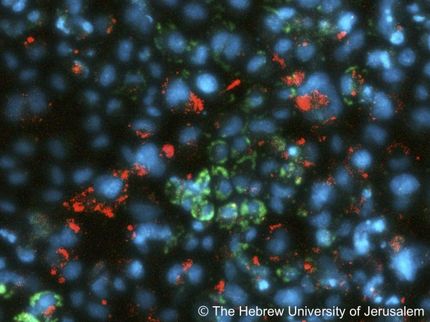BioMosaics Licenses Novel Diagnostic Test for Primary Liver Cancer from Toronto Hospital
Advertisement
BioMosaics Inc. announced that it has licensed a novel diagnostic test for primary liver cancer also known as hepatocellular carcinoma (HCC) -- a technology developed in the laboratory of Dr. Jorge Filmus, of Sunnybrook and Women's College Health Sciences Centre, Toronto, Canada.
"We are excited about the opportunity to advance this technology for the early diagnosis of HCC," said Dr. Mark Allegretta, President and CSO of BioMosaics. "Early detection will be instrumental for the development of improved therapeutics for this devastating disease."
The University of Toronto Innovations Foundation represented Sunnybrook & Women's in effecting the licensing agreement. The agreement covers exclusive, worldwide rights to a diagnostic test system to detect primary liver cancer (HCC), using a unique monoclonal antibody to glypican 3 (GPC3), known to have increased expression in HCC, and shown to be detectable in tissue specimens and serum.
Based on the work of Filmus and his team [Gastroenterology. 2003 Jul; 125(1):89-97], the diagnostic test was positive in the HCC patients, and was, with only one exception, not positive in normal subjects or high-risk patients without liver cancer. The study suggests the test could be more specific than the currently used blood test, which measures serum alpha-fetoprotein.
Glypican 3 is a glycophosphatidyl inositol (GPI)-linked membrane- associated heparan sulfate binding molecule involved in fetal development and organogenesis which is over-expressed on the surface of HCC cells. It is present in increased amounts in the circulation of patients with HCC.
Hepatocellular carcinoma is one of the most common and aggressive malignant tumors worldwide, causing an estimated one million deaths annually. Over 430,000 new cases of HCC are diagnosed each year. One of the largest at- risk populations is hepatitis C carriers. The incidence of HCC has been steadily increasing over the past ten years and is expected to continue to rise over the next decade.
HCC is a cancer with a survival of less than one year using current detection methods. The only curative treatment available is surgical resection, which is successful only if done early in disease. By implementing an early diagnostic test such as the detection of GPC3, it may be possible to improve clinical outcomes through screening and therapeutic monitoring.























































